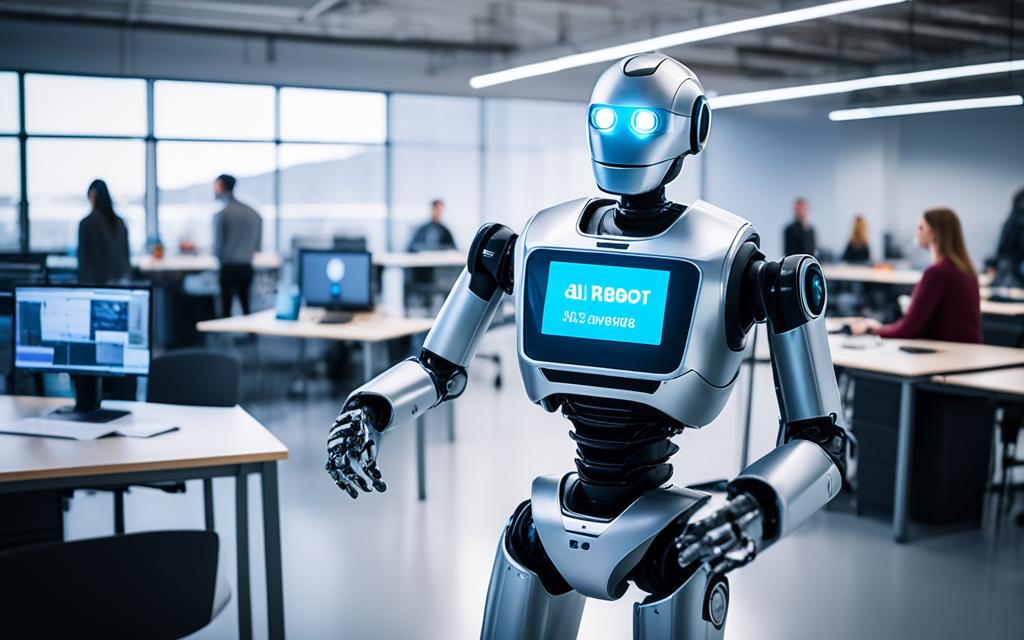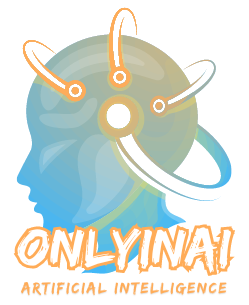Did you know that by 2024, global business spending on AI will jump to $110 billion a year? This shows how fast and far AI is spreading in different fields. AI is now making big decisions in things like college admissions, jobs, and loans. This has led to big debates about AI and its ethical issues.
AI has brought huge advances, but it also makes us think hard about ethics and safety. These technologies are changing our lives, and we worry about our privacy, bias, and freedom. The ethical problems AI brings are complex and need our focus and thought.
Looking into AI’s controversies, we see a tricky balance between new tech and being responsible. AI can make biases worse and mix human and machine decisions in tricky ways. This makes the ethics of AI very complex and requires smart solutions.
Key Takeaways
- Global AI spending projected to reach $110 billion annually by 2024
- AI systems make critical decisions in various sectors, raising ethical concerns
- Privacy, bias, and human autonomy are key issues in AI ethics
- Balancing innovation with ethical considerations is crucial
- AI’s impact spans multiple industries, from education to finance
The Rise of AI: From Research Labs to Everyday Life
Artificial Intelligence has moved from research labs to our everyday lives quickly. This change brings new challenges in regulating, making clear, and being responsible with AI systems. These systems are now used in many areas of life.
AI’s Growing Influence Across Industries
AI touches many areas, like healthcare and finance. In healthcare, it helps with analyzing data and making diagnoses. Banks use it to spot fraud and offer services tailored to customers. Retailers use AI for managing stock and suggesting products to customers.
As AI reaches more areas, making it clear and open is more important. This ensures it’s used fairly and ethically.
Economic Impact and Investment Trends
AI has a big economic impact. In 2023, retail and banking each spent over $5 billion on AI tech. This shows how valuable AI is seen for growing businesses and making them more efficient.
With more money going into AI, talking about its accountability is key. This helps prevent misuse.
Transforming Business Operations and Decision-Making
AI is changing how businesses work and make decisions. It helps with finding materials, developing products, and planning strategies. In HR, AI looks at resumes and interviews, leading to new jobs that mix old skills with AI knowledge.
This change shows why we need rules for AI. These rules protect workers and make sure things are fair.
- AI in sourcing and supply chain management
- AI-driven product development and innovation
- Strategic decision-making powered by AI insights
- AI’s role in reshaping job markets and skills
“As AI becomes ingrained in business processes, we must prioritize transparency and accountability to build trust and ensure responsible innovation.”
AI Bias and Discrimination: Unintended Consequences
Artificial intelligence is changing our world, but it brings up big concerns about bias. AI systems aim to be fair, but they can still spread and boost biases we already have. This leads to unfair results in many areas.
The Challenge of Biased Training Data
AI learns from past data, which often has biases. This means AI can make choices that unfairly target certain groups. For instance, a big tech company had to stop using its AI hiring tool because it was biased against women.
Replicating and Amplifying Societal Prejudices
AI can accidentally make old prejudices worse, hurting groups that have been left behind. This is true in many areas, like the justice system and healthcare. AI can make big decisions that change people’s lives.
| Domain | Potential AI Bias Impact |
|---|---|
| Criminal Justice | Higher risk scores for minority defendants |
| Healthcare | Underdiagnosis of conditions in certain ethnic groups |
| Finance | Unfair loan rejections for specific demographics |
Efforts to Mitigate AI Bias
Fixing AI bias needs a complex plan. Developers are making training data more diverse. Companies are making sure AI development and use are fair. The goal is to make AI more open and accountable.
“AI fairness is not just a technical challenge, but a societal imperative that requires collaboration across disciplines and sectors.”
We can work to reduce AI bias and make AI fairer for everyone. This way, AI can help everyone equally.
Privacy and Surveillance Concerns in the AI Era
The fast growth of artificial intelligence has brought up big debates about privacy. AI systems now gather a lot of personal data without us fully understanding or agreeing to it. This data helps train AI, making us wonder about our privacy rights in the digital world.
One big worry is AI-powered surveillance. New facial recognition and behavior analysis can track our every move and action on a huge scale. Supporters say these tools make us safer, but critics fear we’re moving towards a “big brother” society where privacy doesn’t exist anymore.
The impact of AI on our lives is also about changing our behavior. AI looks at what we do online to show us content that fits our interests. This can shape our choices without us even realizing it. The Cambridge Analytica scandal showed how this could be used wrongly in politics, hurting our democracy.
“AI systems must be designed with privacy safeguards and transparency at their core, not as an afterthought.”
To fix these issues, we need to focus on making AI accountable. Developers and companies should put user privacy first, use strong data protection, and explain how AI uses our personal info. Laws like the EU’s GDPR are good starts, but we must keep watching to make sure AI doesn’t take away our basic rights to privacy and freedom.
AI in Employment: Reshaping the Job Market

The job market is changing a lot because of artificial intelligence. This change affects how companies hire people, creates new jobs, and worries about job loss. As AI gets better, we need to think about making it fair and clear in how it affects jobs.
AI’s Impact on Hiring Practices
AI is changing how companies find new employees. Now, AI tools help look over resumes, do first interviews, and check if a candidate fits the job. But, these tools also make us wonder if they’re fair. Making sure AI doesn’t keep old biases in hiring is a big challenge for employers and those making AI.
The Rise of Hybrid Jobs
AI is taking over simple tasks, so new jobs are coming up. These jobs mix technical skills with things like creativity and understanding people’s feelings. For instance, data analysts now need to tell stories with their numbers. This change shows we need to keep learning and being flexible at work.
Addressing Technological Unemployment
Many worry that AI will take our jobs. To lessen this worry, companies and governments should help workers learn new skills. It’s important to be clear about how AI changes jobs and what skills are needed next. Working with employees on AI can make the change smoother and fairer.
“The future of work is not about humans versus machines, but humans and machines working together to solve complex problems.”
As we move forward with AI in the job market, we must balance new ideas with doing what’s right. Focusing on fairness and transparency in AI can help make a workforce that’s ready for AI’s challenges and chances.
Ethical AI in Financial Services and Lending
AI is changing how we handle money, especially in lending. Now, small businesses can quickly get their credit checked by AI-powered software. This tech aims to cut down on unfairness and help more people get loans.
Banks are using AI to make things run smoother and help them make better choices. But, they have to be careful to follow the rules of ai ethics. They need to make sure their algorithms don’t keep old biases alive.
“AI in lending holds great promise, but we must remain vigilant to ensure ai fairness for all consumers,” says Maria Rodriguez, Chief Ethics Officer at TechFin Solutions.
Financial companies are working hard to use AI the right way:
- They test AI for bias
- Make sure AI teams are diverse
- Set rules for using AI in lending
But, there are still worries that AI could make the same mistakes as before. People who are often left out could get treated unfairly by algorithms. To fix this, rules are being made to control how AI is used in finance.
| AI Benefits in Lending | Ethical Considerations |
|---|---|
| Faster credit assessments | Potential for algorithmic bias |
| Increased access to capital | Data privacy concerns |
| Reduced human bias | Transparency in decision-making |
As AI changes lending, finding a balance between new ideas and ethics is key. The way the industry handles fairness will affect how we use AI in the future. This will also impact who gets loans and how responsibly AI is used.
Controversies Surrounding AI in Healthcare and Medicine

AI is bringing new chances to healthcare, but it also starts debates on ethics and safety. The medical world is trying to balance new tech with caring for patients.
AI-Driven Diagnostics and Treatment Recommendations
AI looks at huge amounts of medical data fast, giving quick diagnoses and treatment plans. But, there are worries about how accurate and reliable these AI suggestions are.
Doctors are unsure if they should trust AI or their own knowledge. This shows we need more safety steps for AI in healthcare.
Data Privacy and Patient Confidentiality
Using AI in healthcare makes people worry about keeping patient data safe. Medical records have very private info, and AI needs lots of data to work right.
- Securing patient data from breaches
- Ensuring informed consent for AI use
- Maintaining doctor-patient confidentiality
Finding a balance between giving AI the data it needs and keeping patient info safe is hard in ai ethics.
Balancing Human Expertise with AI Capabilities
As AI gets more common in healthcare, doctors’ roles are changing. They need to work with AI tools, understanding the results and making the final choices.
“AI should enhance, not replace, human medical judgment.”
Working together, humans and AI can better patient care while keeping the personal touch in healthcare. Training and clear rules are key to making sure AI is safe and used right in medicine.
The Role of Human Judgment in AI Decision-Making
AI is growing fast, making us wonder about its decision-making skills compared to humans. As AI takes on tough tasks, we ask if it should be accountable to humans. The debate is about finding the right mix of machine speed and human insight in important areas.
When it comes to big decisions, like medical diagnoses or legal judgments, using only AI worries many. These decisions need careful thought. That’s why ai transparency is key for fair and right decisions.
“Human judgment acts as a safeguard against potential AI biases and errors, ensuring ethical decision-making in critical situations.”
Experts suggest explainable AI to make AI decisions clearer to us. This means we can check and step in when needed, making AI more accountable.
| Aspect | AI Decision-Making | Human Judgment |
|---|---|---|
| Speed | Extremely fast | Slower, more deliberate |
| Consistency | Highly consistent | May vary |
| Emotional intelligence | Limited | Well-developed |
| Ethical reasoning | Programmed, may be biased | Nuanced, context-aware |
The EU’s GDPR is tackling these issues by highlighting the need for human oversight in AI decisions. This rule aims to balance new tech with ethics, pushing for more transparency and accountability in AI.
Regulating AI: Policy Challenges and Initiatives
AI is getting more powerful, so we need clear rules. Countries are working fast to make guidelines. These rules will protect people and let new ideas grow. AI regulation and ethics are big topics in tech and government.
The EU’s Approach to AI Regulation
The European Union is leading with its AI Act. This law sets standards for AI use in Europe. It’s based on the GDPR, which changed how companies handle personal data. The EU wants AI to be safe and fair for all.
The US AI Bill of Rights
In the United States, things are different. There’s no single AI law yet. Instead, the Biden administration created the AI Bill of Rights. It’s a set of guidelines to protect people from AI harm. But these rules are just suggestions, not laws.
Balancing Innovation and Ethical Considerations
Finding the right balance is the big challenge. Too many rules might slow things down. Too few could let harmful AI go unchecked. Experts say we need strong laws and public input to guide AI growth. This way, we can enjoy AI’s benefits while avoiding its risks.


